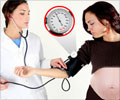- Hypertensive disorders of pregnancy are fairly common, affecting nearly 10 percent pregnancies.
- Women with hypertension disorders during pregnancy have an increased risk of post-pregnancy hypertension, heart disease and stroke.
- Current study suggests that these women should have regular blood pressure monitoring, starting immediately postpartum to prevent complications.
Hypertension Risk in Women With PIH - What Is New In Current Study
The research team feels that existing research to determine future hypertension risk in women with PIH does not clearly outline exactly when the risk of hypertension appears postpartum and how the risk changes over time. These answers would provide valuable evidence based on which recommendations for blood pressure checks and appropriate interventions post-delivery can be made. The study team set out to answer these questions in their study.For the study, the team used two cohorts, conducted among pregnant women nationwide across Denmark.
- All pregnancies, more than 20 weeks ending in live or stillbirths from 1995-2012 to estimate the cumulative risk of post-pregnancy hypertension. This study included 482972 participants.
- All women who had at least one pregnancy more than 20 weeks ending in live or stillbirths between 1978-2012 who were living in Denmark at some point during the followup from 1995-2012. This group was used for hazard ratio (relative risk) estimation of post-pregnancy hypertension and included 1025118 women.
- In the first cohort, 22,235 (4.8%) were diagnosed with hypertension in their first pregnancy, and 16 611 (3.4%) developed hypertension subsequent during follow-up.
- Women who were normotensive during first pregnancy in their 20s, 30s, or 40s had cumulative incidences of hypertension of 4.0%, 5.7%, and 11.3%, respectively, in the 10 years (decade) following delivery.
- The corresponding cumulative incidences for women whose first pregnancy was complicated by a hypertension were 13.7%, 20.3%, and 32.4%, respectively.
- A similar pattern was noted in the decade following a second pregnancy in women with two pregnancies, where either pregnancy could have been complicated by hypertensive disorder.
- In the second cohort of 1025118 women, 59 319 (5.8%) had one or more pregnancies complicated by hypertensive disorders between 1978 and 2012; 183 423 developed hypertension during follow-up (1995-2012).
- In the first year post-delivery incidence of post-pregnancy hypertension was 12-fold to 25-fold higher in women with a hypertensive disorder of pregnancy than in women who had normal blood pressure during pregnancy
- One to five years postpartum, hypertension rates were four to 10-fold higher in women with a hypertensive disorder of pregnancy following the most recent pregnancy.
- Subsequently, the hazard ratios decreased in women with PIH, but even after 20 years their hypertension rates were twice as higher compared to women with normotensive pregnancies.
Sequence Of Hypertension In Women With Two Pregnancies – How It Affects Post-delivery Hypertension
- Having a hypertensive disorder of pregnancy in the first pregnancy but not in the second was associated with a doubling of the rate of post-pregnancy hypertension, compared to having normotensive pregnancies.
- The risks were even higher in women with a normotensive first pregnancy and a hypertensive disorder in the second pregnancy.
- The largest (hazard ratio range 2.6-7.8) in women with hypertensive disorders affecting both pregnancies.
The important takeaway from the study is that increased risk of post-delivery hypertension appears immediately after a hypertensive pregnancy.
The highest risk is in the first year, gradually decreasing but still persists even after 20 years when the risk of post-delivery hypertension is twice as much in women who have had hypertensive pregnancies than those with normal pregnancies.
Hypertensive Disorders of Pregnancy
Hypertensive disorders during pregnancy are common, occurring in up to 10 percent of all pregnancies, and include gestational hypertension, preeclampsia (which is a combination of high blood pressure and proteinuria), and eclampsia, which comprises seizures in women with preeclampsia. High blood pressure develops after 20 weeks gestation and becomes normal following delivery.Women with hypertensive disorders associated with pregnancy are at increased risk of developing essential hypertension, ischemic heart disease and stroke, prompting the American Heart Association and the European Society of Cardiology to add hypertensive disorders of pregnancy as risk factors for cardiovascular disease in women
References:
- Ida Behrens, Saima Basit, Mads Melbye, Jacob A Lykke, Jan Wohlfahrt, Henning Bundgaard, Baskaran Thilaganathan, Heather A Boyd. Risk of post-pregnancy hypertension in women with a history of hypertensive disorders of pregnancy: nationwide cohort study. The British Medical Journal (2017). doi: https://doi.org/10.1136/bmj.j3078
















